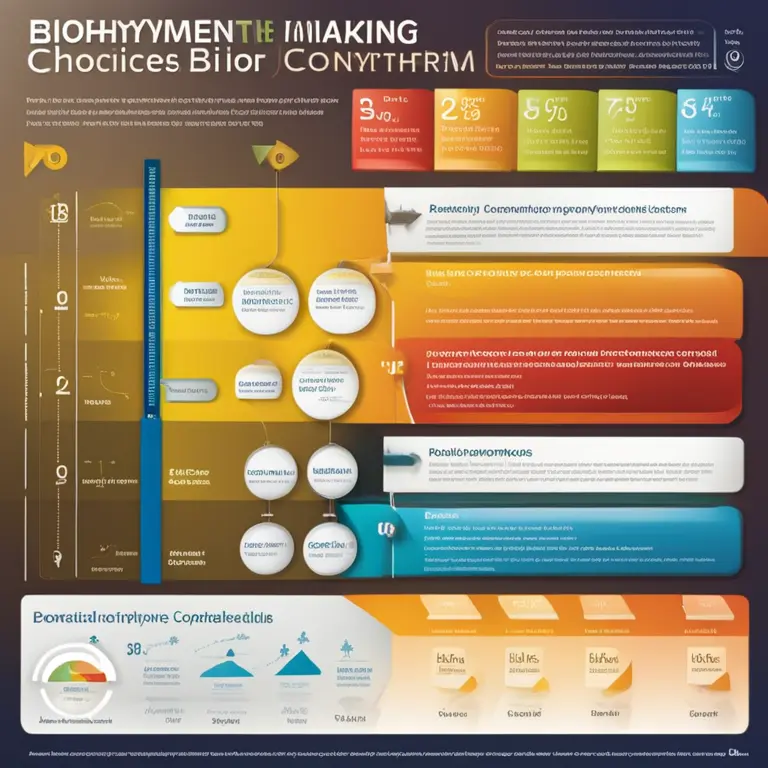
The Significance of Biological Rhythms in Our Lives
Discover the critical role of biorhythms in health, decision-making and predicting personal dynamics.
article by Adrian Wallace
Defining Biorhythms
Biorhythms are considered the invisible forces that regulate our bodies, weaving through our wellness, emotions, and intellect. Initially conceptualized in the late 19th century, these intrinsic cycles are thought to influence our physical, emotional, and intellectual states. As we advance in time, the scientific interest in biorhythms and their possible effects has broadened, offering insights into personal optimization. Modern applications reach into the workplaces, sports, and even personalized medicine, demonstrating the enduring impact of these cycles on our daily lives.

Physical Health and Biorhythms
The connection between our biorhythms and physical health cannot be overstated. Our body hosts a range of cycles, from circadian rhythms governing sleep to ultradian rhythms impacting heartbeat and blinking. In recent years, advancements in wearable technology have made monitoring these rhythms more accessible, leading to more personalized health recommendations. Acknowledgment of these rhythms is essential in the prevention of chronic diseases and in the strategic timing of medication for optimal efficacy, resonating with the trend towards precision medicine.

Biorhythms Impacting Decision-Making
Every decision we make, from minor choices like what to eat, to significant life-changing decisions, can be influenced by our current biorhythmic state. Understanding one's personal rhythm can lead to better outcomes and productivity. Corporate schedules and the educational system are more frequently taking into account biorhythm analysis to optimize performance and minimize stress. Indeed, the future could see AI-driven systems that advise on decision-making based on individual biorhythmic calculations.
Emotional Intelligence and Biorhythms
Our emotional highs and lows are not purely random. They are intricately connected to emotional biorhythms that ebb and flow. Today, mental health professionals pay greater attention to these patterns, providing tailored therapies that align with the cyclic nature of human emotions. The influence on relationships is profound, as becoming attuned to one’s biorhythms can improve interpersonal dynamics by promoting empathy and foresight in emotional exchanges.
Intellectual Biorhythm and Cognition
Intellectual biorhythms, although less discussed, play a pivotal role in our cognitive processes. They are believed to affect our alertness, concentration, and problem-solving abilities. The burgeoning field of neurology constantly offers fresh perspectives on optimizing our intellectual cycle through diet, sleep, and cognitive training. Contemporary research may soon unlock the potential to synchronize learning and working schedules with individual intellectual biorhythms, revolutionizing education and professional development.
Biorhythms and Beyond
Looking into the future, biorhythms hold a promise of much more than just personal insight. They represent a frontier for biotechnology and AI, with implications for enhancing life quality. As we incorporate biorhythmic understanding into various aspects of society, from healthcare to corporate environments, we are on the cusp of a new era where our biological rhythms are not only understood but also respected and celebrated for their influence on our daily existence.
Published: 1/25/2024
Modified: 1/25/2024
More predictions
Come back here soon to learn more about yourself and your future


The Basis of Biorhythms: Biological Cycles Explored
Delve into the foundations of biorhythms and discover how these natural cycles influence our daily lives and well-being.


The Principles of Biorhythm Cycles
Discover the fundamental principles of biorhythm cycles and how they influence daily life and personal well-being in this insightful article.


The Biorhythm Debate: Effective Insight or Myth?
Discover the realities behind biorhythms, how they're calculated, and their impact on daily life. Can these biological cycles truly predict our physical, emotional, and intellectual states?